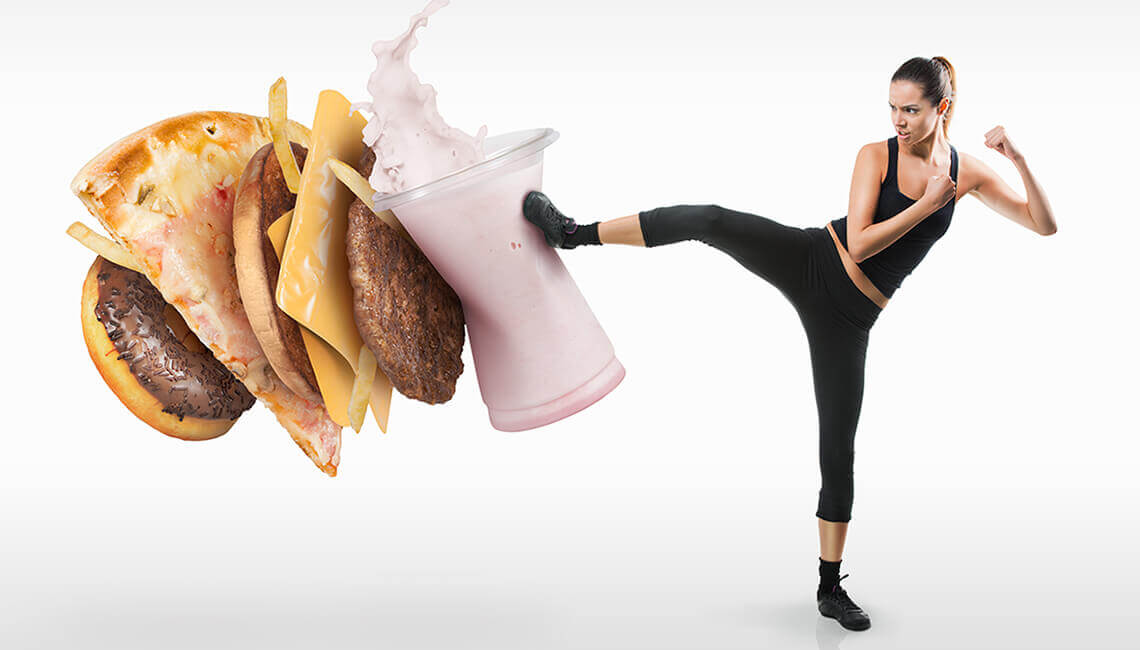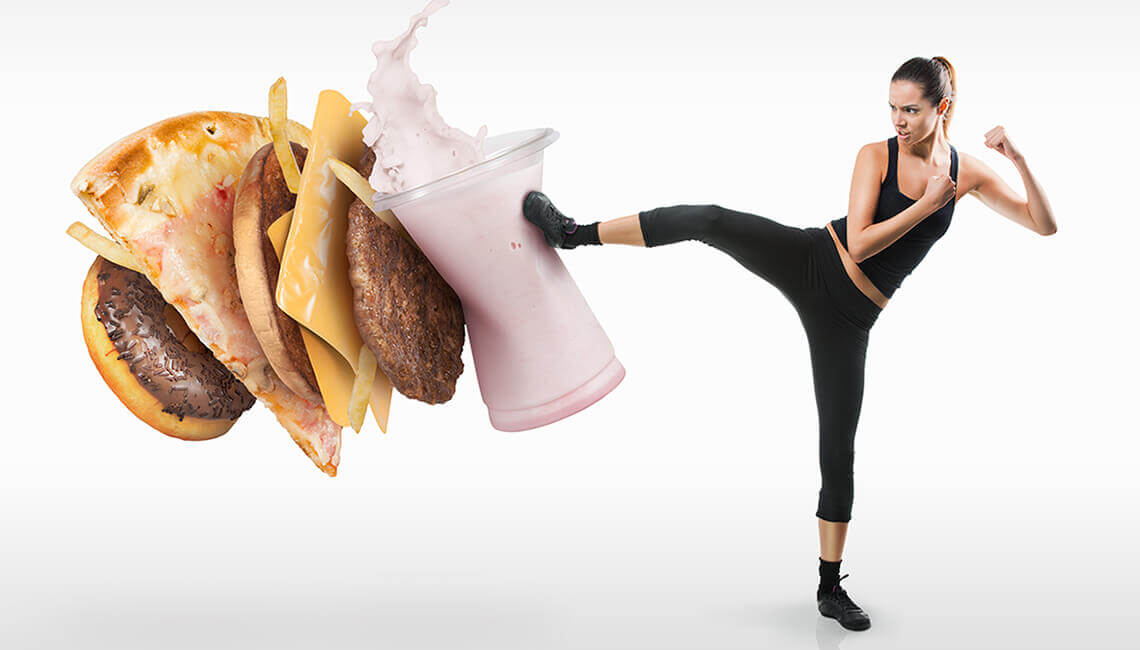Award-winning chef and author Cheryl Forberg—The Biggest Loser’s nutrition expert for 15 seasons—delivers the skinny on healthy food choices while debunking modern diet myths.
By Andrew C. Stone
When Cheryl Forberg first meets a contestant on NBC’s The Biggest Loser, a flurry of competing emotions well up. There’s enthusiasm over each individual’s potential; tension created as morbid obesity meets extreme fitness goals; curiosity about forthcoming emotional breakthroughs; and concern over the healing that must take place to ensure each person’s well-being. All the while, she’s grown increasingly aware of the oversized epidemic that has the US in its grips.


“I learn so much from our casts, who personify overweight America,” says Forberg—a New York Times-bestselling cookbook author and James Beard Award-winning chef. “Fast food and highly processed, salty, fatty food cause our palates to get accustomed to overly seasoned foods. Everything else tastes bland.”
Forberg—who received French culinary training at the California Culinary Academy and worked for chefs such as Wolfgang Puck before becoming a registered dietician and conducting dietary research at LA’s Cedars-Sinai Medical Center—has made it one of her life’s missions to make healthy eating tasty and fun. Her recent cookbook, Flavor First: Cut Calories and Boost Flavor with 75 Delicious, All-Natural Recipies—and its newly released pocket companion guide, The Flavor First Diet—offers recipes for all occasions. She shares the book, and all of her know-how, with the Biggest Loser contestants. Her food plan, “The Biggest Loser: Six Weeks to a Healthier You” was declared “Best Diabetes Diet” by US News and World Report, and ranked number two in the “Best Weight Loss Diet” category.
“It helps that I trained as a classical French chef, with all the cream and butter,” she insists. “I know how to make things taste great. If you can use butter, cream, and sugar, that’s a no-brainer. I can embrace the skill sets of my classical training and those of being a dietician.”
Forberg wants her contestants—and anyone who struggles with weight—to enjoy their food, but be healthy about it. That means putting the focus on high-quality calories. “People think a 100-calorie snack pack is a good idea for a snack, while usually it’s just a small serving of junk,” she says. “I focus on clean eating— fresh fruits and vegetables; whole grains; lean proteins from dairy, meat, and fish; and really good fats from sources such as nuts, seeds, avocados, and olive oil.”
Americans are trained to reward and indulge with sweets, liquor, and fried foods, and the issue of will-power runs deep within our culture. Forberg is a firm believer in personalizing one’s healthy food plan. “It has to be subjective and individually tailored,” she says. “If someone really has to have peanut butter every day, there’s a way to make that work for them.”
Rather than banning an ingredient outright, Forberg puts a high premium on portion control, citing that people have no idea what a healthy portion looks—or feels like. “You should never have to unzipper or unbutton anything after a meal,” she says. “When I tell someone that the calorie budget for their day is 1,200 calories, and they have been eating 4,000 a day, they don’t know what 1,200 calories looks like. You have to learn how to divide those calories up—three 300-calorie meals and two 250-calorie snacks.”
Variety is a crucial, basic building block of Forberg’s food philosophy. Whole grains, fruits, and vegetables provide the variety of vitamins and nutrients the human body needs. She urges people not to drink their calories with sugar-laden juices and soft drinks. She’s also big on combining different food groups so the body’s never lacking in energy. “It’s important to combine a little bit of carbohydrate, protein, and a little bit of fat when you eat,” Forberg says. “Berries are wonderful, but they’re better when eaten with some Greek style yogurt. Having some lean turkey is great for protein, but if you eat it on wholegrain bread with a bunch of vegetables, you’re way better off.”
Forberg recognizes that creating a healthy relationship with food sounds simple, yet can be extremely challenging. “There’s something about human nature, that when we’re upset we go out and eat crap instead of nurturing food,” she says. “It seems so counterintuitive, but for some reason that’s what we do.” It can, however, be done—and the payoff is always well worth the effort.
The Dietary “Lightning Round”
Forberg shares the pros and cons of some of today’s top diet fads.
Volumetrics (lots of water in everything): “I think it’s great. I love the concept.”
The Fast Diet (people “feast then fast”): “I think that’s too hard on your body, and the feasting is like a sanctioned binge. It’s not good mentally, emotionally, or physically.”
The HCG Diet (involves hormone injections): “No. Aside from whatever the heck the hormone is doing, the calories are so low that you can’t exercise. If you can’t exercise you are going to lose your muscle, too.”
Paleo (aka the Caveman diet): “I like it, although for some people it’s too restrictive to go without any grains and legumes.”
The Ornish Diet (loads of fiber, little fat, no meat or alcohol or fish): “What Dr. Ornish is doing is wonderful and really healthy—although I enjoy drinking a glass of wine with dinner. I live in Napa Valley, California, and if I told my clients here they couldn’t include wine whatsover, I wouldn’t have any clients.“
The Mediterranean Diet (fruit, vegetables, nuts, olive oil, little red meat): “It’s great.”
Atkins (low carbohydrates): “It’s too restrictive, and the types of fat that are allowed are not all good fats. Restricting carbohydrates to such an extreme is not a good thing—as evidenced by the weight regain that happens to everybody when they stop. People like it because they have success dropping pounds quickly, but it’s not sustainable.”
Veganism (no animal products): “A vegan diet is great, and I admire people that can stick to that. I love cheese and I have fourteen chickens and love eggs and love meat, so it’s not for me. I do try to have vegan days in my week, which is a really healthy way to go.”












